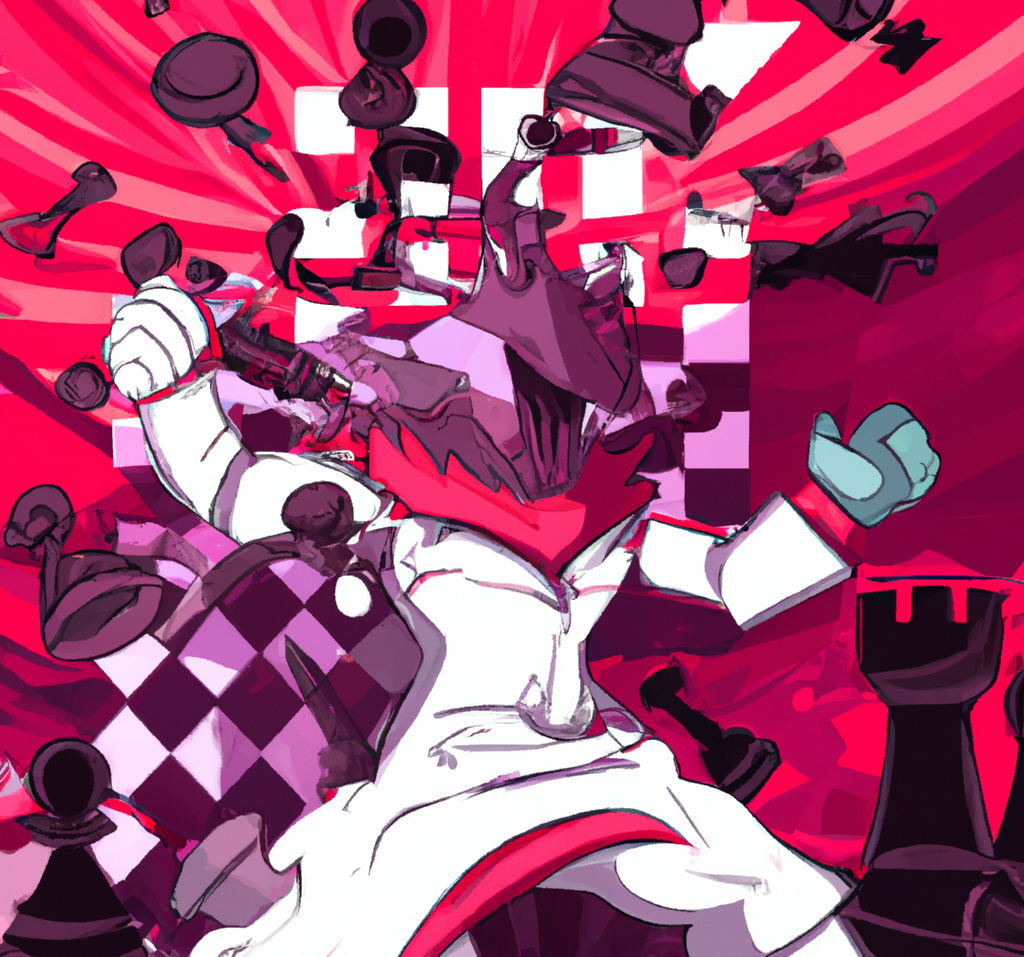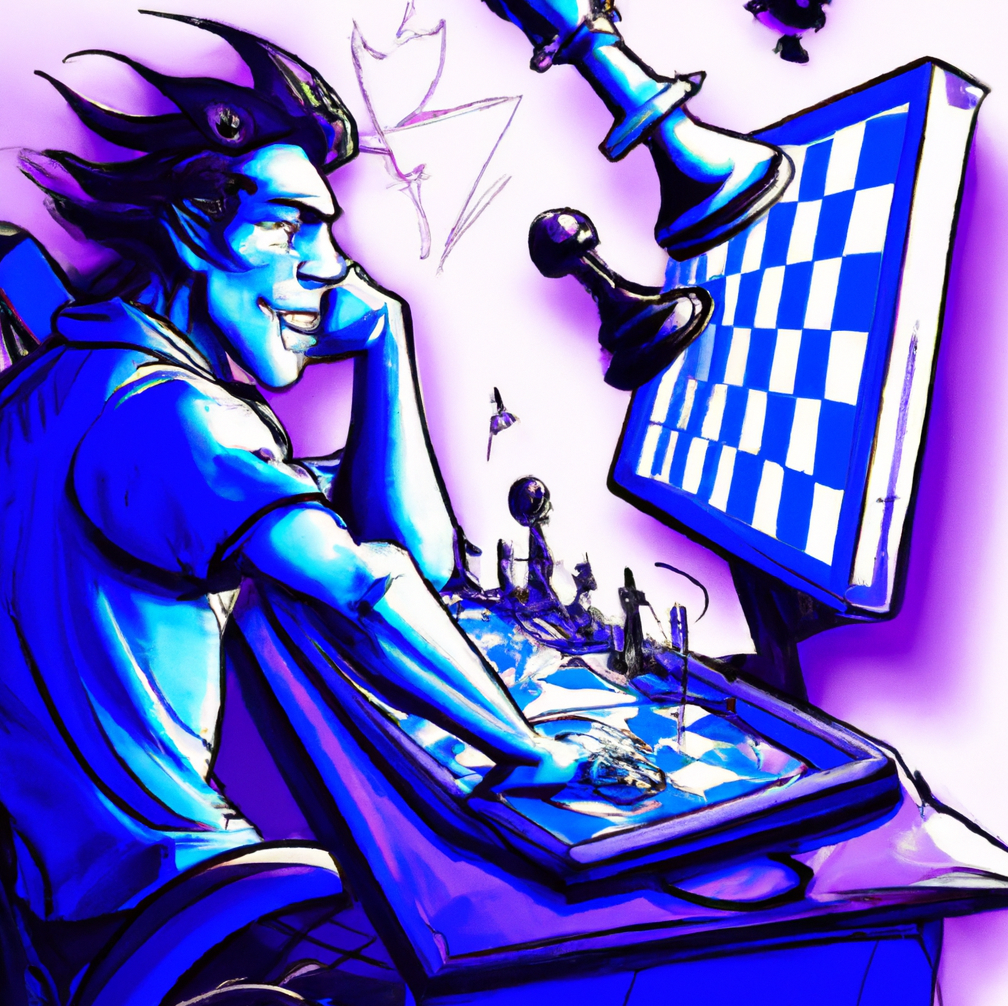How To Stop Chess Rage and Tilt
We all know the feeling of rage and anger after losing a chess game due to a blunder or running out of time. What follows is a spiral of negative emotions that leads to our following games getting worse and worse. A negative spiral that leads to a seemingly unending loss of rating points – this is called “tilt”. Today we’ll look at what causes chess rage and tilt and how to combat it effectively, to become a better chess player.

What is Rage, Anger and Tilt?
Chess rage (or anger) is a term used to describe the intense frustration and anger that some chess players experience while playing the game. It can manifest in a variety of ways, from verbal outbursts and physical aggression to simply feeling overwhelmed and defeated. But what exactly is the difference between rage, anger and tilt?
Reddit-user u/GreyAura defined the terms really well, in my opinion:
- Rage and anger are both emotions. When we lose a game of chess, we feel anger (often towards ourselves) and rage at our own stupidity.
- Tilt is the condition of being carried away by your emotions. When we let our anger influence the way we play the following games, we entered the tilt-stage.
So really, what we want to get rid of, is the tilt. It is completely normal to feel angry when we lose a game of chess. But we shouldn’t let that rage negatively influence our following games, creating the infamous negative spiral.
Why Do We Get Angry When Playing Chess?
In order to understand how we can control our emotions, first, we need to understand what actually causes us to get angry (and thus tilt) in chess. Let’s look at the three most common reasons for chess rage:
- Blundering and losing the game as a result. Blundering in chess refers to making a mistake or a poor move that ultimately leads to a disadvantageous position. This can be frustrating for a chess player because it can lead to them losing the game or squandering a strong position.
- Running out of time. If a player runs out of time before making all of their moves, they lose the game (that’s pretty obvious). This can be especially frustrating for players who are ahead in the game and feel that they were on track to win, only to lose because they ran out of time.
- Personal factors. Individual players may have personal factors that contribute to their anger while playing chess. For example, some players may have a naturally short temper, or may have a tendency to take the game too seriously.
But let’s put things into perspective first. Having emotional outbursts in chess is completely normal, as it is in every sport. Even Magnus Carlsen isn’t immune to chess rage:
What is important, is how we deal with the anger in order to avoid tilting in the first place. Let’s look at how we can do that.
How To Deal With Rage in Chess (4 Tips)
- Take a short break. Step away from the (digital) board, take a few deep breaths, and try to clear your head. This will give you a chance to calm down and refocus before continuing with the game.
- Practice mindfulness. Mindfulness is the practice of being fully present and aware of your thoughts and emotions without judging them. In the heat of a chess game, it can be easy to get caught up in your thoughts and emotions, leading to anger and frustration. By practicing mindfulness, you can learn to recognize and accept your emotions without letting them control your actions (i.e. leading to tilt).
- Set realistic expectations. Unrealistic expectations can be a major source of anger and frustration in chess. If you expect to win every game or play perfectly, you are setting yourself up for disappointment. Instead, try to approach each game with a realistic expectation of what you can achieve. This will help you to stay grounded and avoid getting overly upset when things don’t go as planned.
- Play more offline chess. We will expand on this point in the next section.
Tilt in Online Chess vs. Offline Chess

One of our tips to control your emotions and reduce tilt was to play more offline chess. But why does offline chess lower the possibility of falling into the downward spiral of chess rage? Let’s investigate.
First, playing offline chess allows for a more relaxed and controlled environment. When playing online, there can be distractions and interruptions (I know you have other tabs open when playing on Lichess) that can disrupt the flow of the game and cause frustration. In contrast, playing offline allows you to focus solely on the game, without any outside distractions (in most cases at least).
Second, playing offline chess allows for more physical activity, which can help to dissipate anger and other negative emotions. In online chess, you are sitting in front of a computer, potentially for long periods of time. This lack of physical activity can contribute to feelings of frustration and irritability. In contrast, playing offline chess involves moving around the board and physically making moves with the pieces. This can help to release tension and improve your overall mood.
Finally, playing offline chess allows for more face-to-face interaction with your opponent. This can help to foster a sense of sportsmanship and camaraderie, which can reduce feelings of anger and hostility. In online chess, you are often playing against a screen, which can make it easy to become disengaged and detached from your opponent. In contrast, playing offline allows you to engage with your opponent on a more personal level, which can help to keep emotions in check.
Conclusion: Staying Calm While Playing Chess Is Essential
In conclusion, staying calm and avoiding rage in chess is essential to becoming a better player. This allows you to think more clearly, make better decisions, and maintain a healthy mental and emotional state. By managing your emotions and avoiding letting rage and anger (and ultimately a state of tilt) get the best of you, you can improve your performance on the board and enhance your overall enjoyment of the game.
We hope this Chessily guide will help you in staying calm at the board! Got any other tips on how you manage your emotions in (online) chess? Feel free to contact us.

